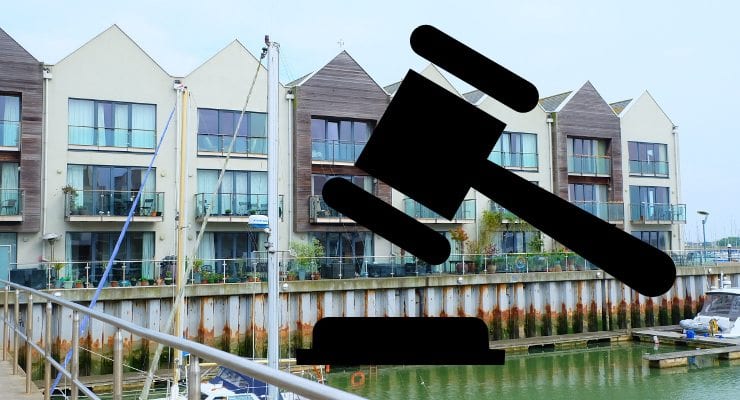Greenpeace Ruling Exposes UK Government Policy
March 3, 2025
In January 2025, Greenpeace brought a collective action against the Dutch state for failing to comply with a 2018 European Court of Justice ruling on nutrient neutrality. An appeal is expected: however, as the UK Government has adopted the same ‘tax builders for pollution others cause’ approach to reducing nutrient pollution, it may find itself needing to reassess its strategy if it is to escape legal action.
Richard Beresford, Chief Executive of the National Federation of Builders (NFB), said:
“Labour inherited a disastrous ‘blame builders’ policy by the last government, which flirted with reversing their approach, but prioritised their party over growth and fairness by choosing to tax developers to mitigate pollution cause by agriculture and water waste companies. The Netherlands has exposed this approach as flawed, something industry has been warning Government about since 2019, because pollution in protected habitats has not improved.”
The UK Government chose to replicate the Netherland’s model of taxing the development industry by forcing them to purchase local mitigation credits to offset the impact of new developments. Unfortunately, in many areas, these credits remain unavailable and even when this meant housebuilding was banned, water quality often worsened.
Rico Wojtulewicz, Head of Policy and Market Insight, added:
“New housing accounts for less than 1% of nutrient pollution, and that pollution comes from occupants, who already pay water companies to clean up their waste. The only solution is to help farmers pollute less, since they contribute up to 75% of it, and ensure water companies are held accountable by requiring them to deliver infrastructure, such as treatment works, and using emergency planning powers to support these projects.
Blaming builders has only worsened the quality of watercourses. For example, despite no new housing being built near the River Lugg, pollution levels have still increased. Water companies continue to escape accountability by using a developer tax to deliver solutions such as wetlands, while existing waterways continue to be polluted. Meanwhile, the credit mitigation system has seen SME builders hit the hardest, projects ended due to a lack of credit availability, and UK food security reduced through loss of farmland in order to create mitigation credits.
This perverse six-year experiment must end, not just for the sake of growth, but for the health of the UK’s environment.”
You May Also Enjoy
2026 Predictions for the Auctions Sector
Daniel Gale, Head of Auctions, First for Auctions, part of LRG “As we enter 2026, market conditions are expected to mirror those seen last year. Buyer confidence remains cautious, borrowing costs are still high, and lenders continue to tighten criteria. This ongoing pressure on private treaty sales is driving more sellers towards auction as a…
Read More First-time buyer demand edges higher in Q4
The latest research by Yopa has revealed that first-time buyers are beginning to return to the market, encouraged by stabilising interest rates and the base rate cut seen in December, with demand edging higher during the final quarter of the year. Yopa analysed first-time buyer (FTB) demand based on the proportion of homes listed under…
Read More Rental price and average salary tracker – December 2025
Seasonal slowdown brings month-on-month rent falls, while affordability pressures remain entrenched Year-on-year trends continue to show only modest movement, with the income required to rent remaining broadly stable across most regions, reinforcing the long-term affordability challenge facing tenants. The most notable shifts in the market are now happening month-on-month, with several regions experiencing sharp short-term…
Read More Expectations are high for a booming mortgage market
Moneyfacts UK Mortgage Trends Treasury Report data reveals the falls in mortgage rates during 2025, along with product choice growth, sets a positive stage for the market in 2026. Product choice overall rose month-on-month, to 7,158 options, where year-on-year, there are now 650 more deals available to borrowers. The latest count is the highest since…
Read More Homebuyers benefit as 37% of homes see price cut
January sales bring bargain opportunities for homebuyers, but window is already narrowing as market strengthens The latest research by Benham and Reeves has shown that 37% of homes currently listed for sale across England have seen an asking price reduction, meaning homebuyers entering the market this January have a strong chance of securing a bargain.…
Read More Home sellers hit the ground running in 2026
The latest market analysis from GetAgent.co.uk shows that momentum is already starting to build in 2026, as sellers are returning to the market at mass, keen to make their move now that Autumn Budget uncertainty is behind us and buyer confidence has been buoyed by a December base rate reduction. GetAgent analysed current for-sale listings…
Read More 








